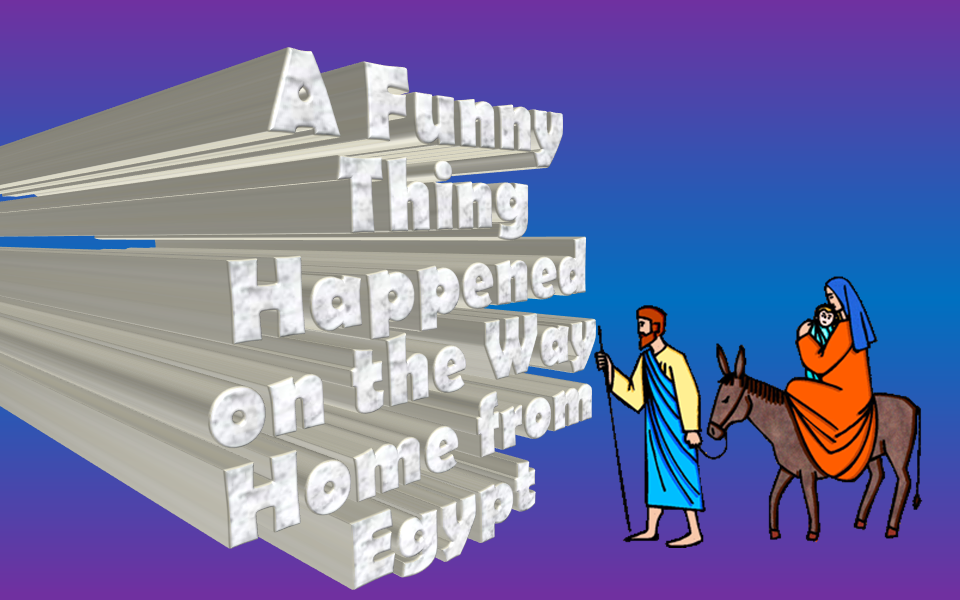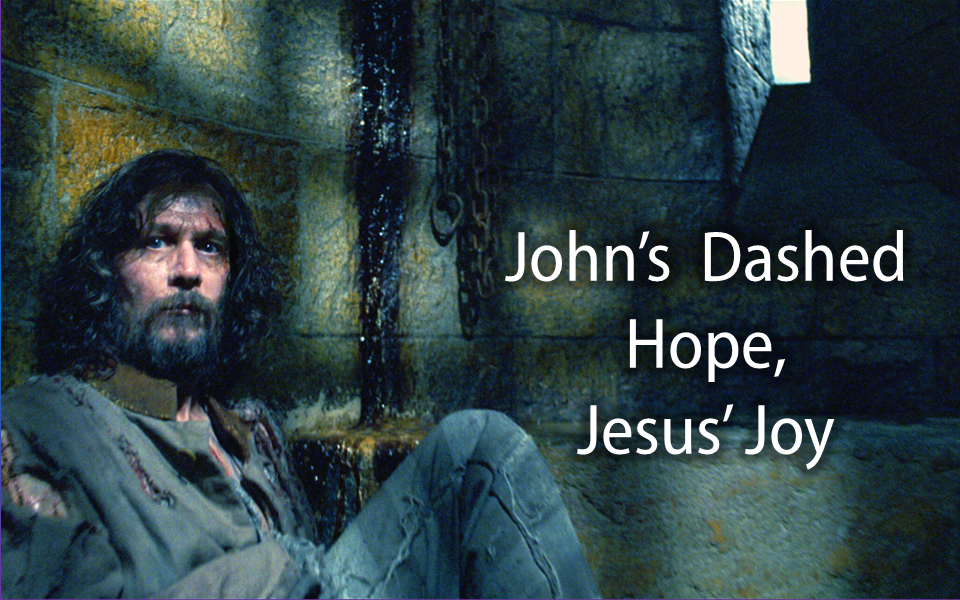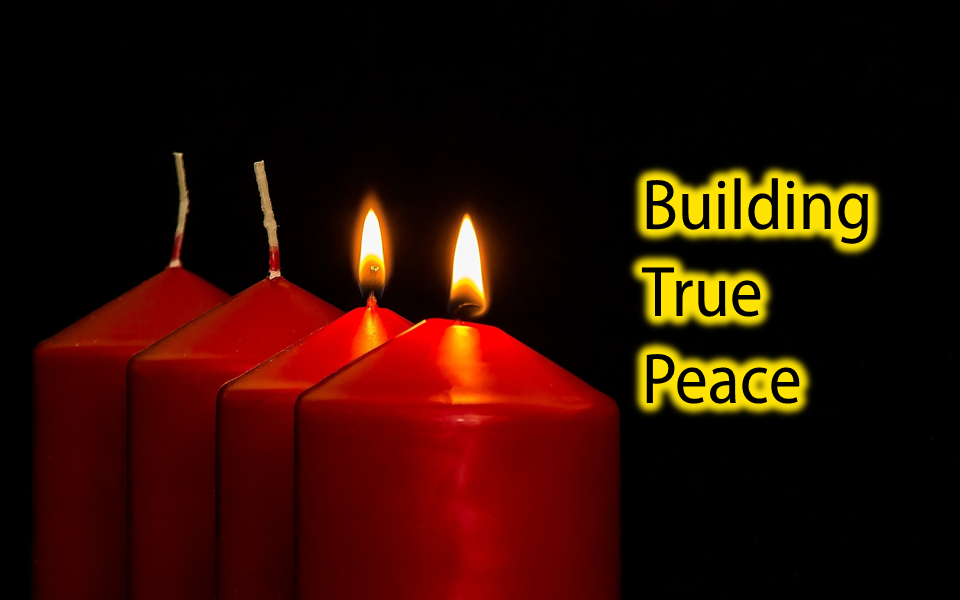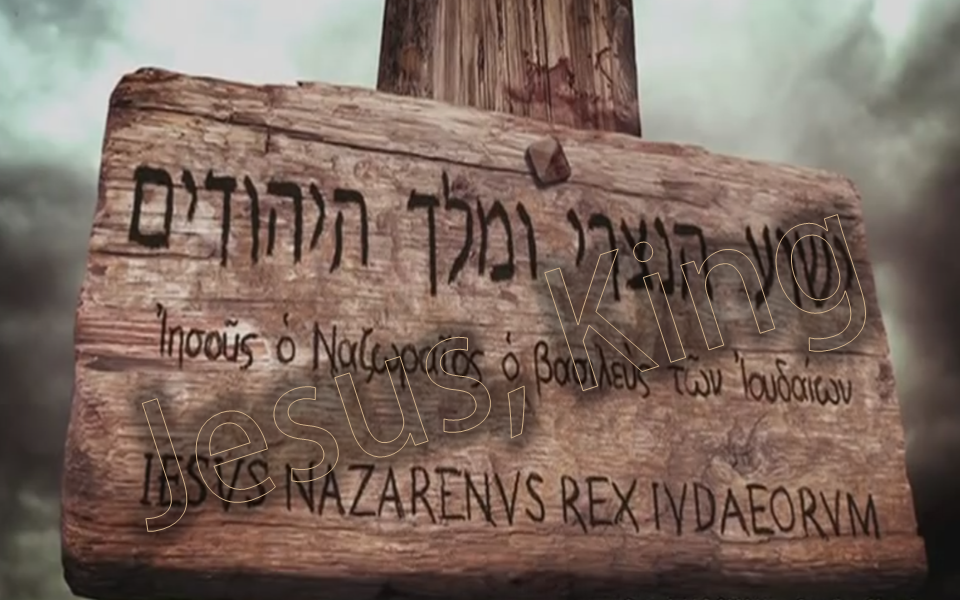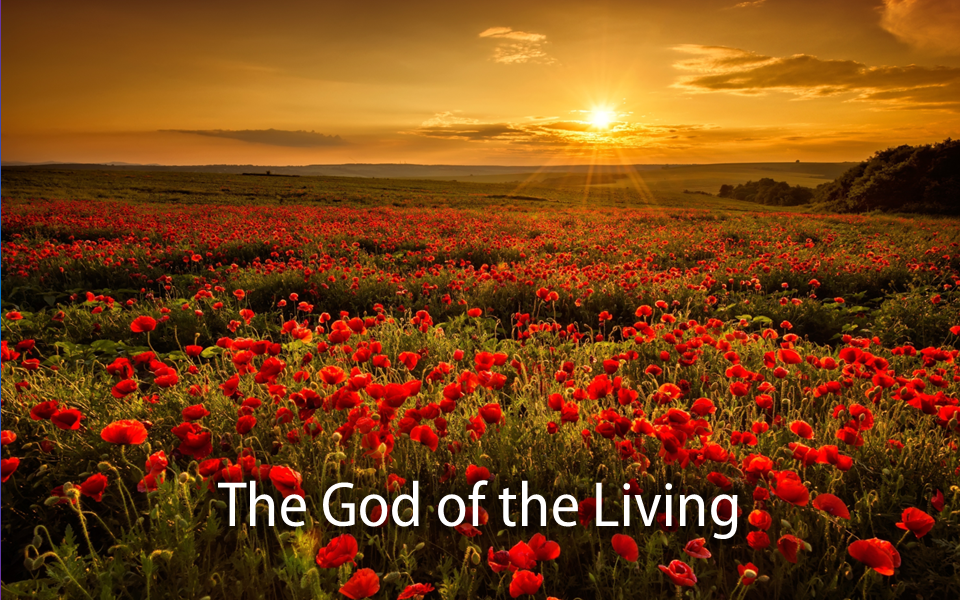Hespeler, 22 January 2023 © Scott McAndless
Isaiah 9:1-4, Psalm 27:1, 4-9, 1 Corinthians 1:10-18, Matthew 4:12-23
According the Book of Acts, the church in Corinth was founded by the Apostle Paul. It says that he stayed there for some considerable period of time and, during that time, a group clearly came together – a group that was united in their love of and faith in Jesus. I am sure it was a wonderful time when they felt very much in agreement with one another and there were no divisions among them. It felt as if they were “knit together in the same mind and the same purpose.”
But then Paul moved on. God called him to continue the work elsewhere. And I’m sure that, as he continued that work, he often paused and remembered those people in Corinth fondly and he smiled as he imagined them continuing to move forward with one mind and purpose.
Other Influences
But time went on and other people began to have influence in the church in Corinth. Apparently, the Apostle Peter, who often went by the name Cephas, stopped by for a while and that was a great blessing to the church. And then there was another man named Apollos, who was young and very charismatic, even if he didn’t really know as much as he thought he did. He spent time there too and a lot of people really loved him.
And eventually there was a woman named Chloe in the church at Corinth. She was clearly an important leader. And she looked around at the church one day and she noticed that people weren’t quite so “knit together in the same mind and the same purpose” anymore. She was a little worried that maybe the church had kind of lost its way and was spending way too much time disagreeing and arguing over things that maybe didn’t even matter.
Chloe Reaches Out
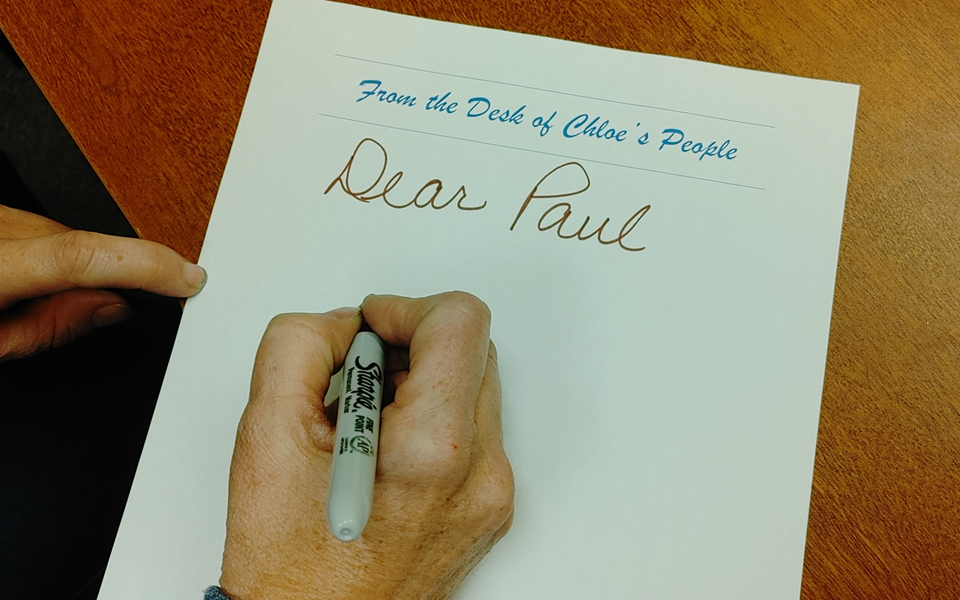
And so, she reached out to the founder of the church; she reached out to Paul. And it is that initiative that lies behind the letter of Paul to the church in Corinth. Either Chloe wrote a letter together with a few other people raising her concerns with Paul, or maybe she sent some people to find him and speak on her behalf. But however it happened, when Paul received the message from Chloe’s people that illusion that he had of a united church in Corinth working with one mind towards a unified purpose was shattered.
Our Ideas of Church
And it makes me wonder. All of us, in our dealings with the church, have ideas about the church. We carry around notions of the church’s purpose and meaning and how it operates. We carry around wonderful memories of when the church has been there to support and encourage us through trying times and we carry around painful memories of the times when the church has failed us or disappointed us too.
We construct stories about the church just like we construct stories about our families, our jobs and other important things in our lives. That is just typical human behaviour. But, every so often, we do need to take a step back and look a little bit more carefully at what we are doing, and it seems that Chloe’s letter provided Paul with the opportunity to do that.
What if Chloe Were to Write about us?
So, I was thinking, what if Chloe were to write a letter about our church to Paul. What kinds of things might she highlight? How might she help us to better understand what it is we are here to do?
“Dear Paul, I know that it was your intention when you, together, I suppose, with St. Andrew, founded St. Andrew’s Hespeler Presbyterian Church that we should all of us be in agreement and that there be no divisions among us but that we be knit together in the same mind and the same purpose. But I’ve got to tell you, Paul, that it doesn’t always work out that way. That’s right, there are divisions among us.”
Different Eras in our Life
“In fact, different people have come to be part of the church at different times. Some were baptized, some were born and some just came along and joined. But the thing is that the time when this congregation was most meaningful to them came at very particular points in the life of the congregation. What I mean is that each of us says, ‘I belong to the era of Wally,’ or ‘I belong to time of Kevin,’ or ‘I belong to Jeff,’ or ‘I belong to Scott.’”
If Chloe were to write a letter about our congregation, I wonder, would that be what she noticed? I mean, I am certain that she would highlight some really good things too. She would talk about the amazing outreach we do in the community. I’m pretty sure she would talk about some wonderful spiritual experiences too. But what if that is something that stands out for people who have spent a little bit of time with us?
Why the Church Exists
The church exists so that we can come together – so that we can be “knit together in the same mind and the same purpose.” And that unified purpose has to do with sharing good news with the world around us – sharing it in word and in deed. To put that another way, the church exists for the sake of those who are not in the church – or at least for the sake of those who are not yet in it. And so long as we are focussed on that purpose, it is probably not too hard to be in the same mind.
But, even if that is what the church is for, that is not always what we experience in the church. We also experience valuable things like friendships and encouragement. We get opportunities to exercise leadership. And we experience things that make us feel good or that help us through difficult times. And these are all very positive things and wonderful things that we get from the church.
They are not the main purpose, but they are benefits that come from being together with other people who are of the same mind. And these are definitely things that help us to be built up in Christ.
The Reality of Change
But the church doesn’t stay the same all the time. We might think that it should, but it doesn’t. And perhaps in the case of our congregation, that change is best symbolized by those periods of time that I just mentioned. And there were things about those times that were wonderful and that ministered to people in various ways.
And so what I think happens is that we tend to become fixed on those periods of time when the church responded to us exactly how we needed it most and we got that encouragement, companionship, influence and more.
But when that is where we get stuck, what happens? We become more focused on what we are getting from the church when it is responding to our particular needs in a direct way. We see that more than we see our participation in the ministry and that single purpose that we are supposed to have becomes more elusive.
I’m not saying that we’re not supposed to get things from the life of the church, of course we are. But when we spend our energy measuring that and finding it lacking, we will definitely begin to break down in that sense of unified mind and purpose.
Becoming Chloe’s People
So what do we do with all of that? It should turn us into Chloe’s people. We need to be willing to take a look at who we are and what draws us together and what may pull us apart. That is what we are trying to do even today. We are going to ask all of you in sessions today or at other times to tell us what you see about the unique strengths and calling that you find God has placed upon this congregation.
We are asking each one of you to participate in sessions where we ask questions like, “In what ways is St Andrew’s Hespeler a source of delight to God? What are our strengths, assets, opportunities? What do we do really well? What are our challenges? Our fears?” And, yes, we’re even going to dare to ask questions like, “What are some of the things in our past that have really had an impact on us?” As well as talk about some of the struggles in our present.
I hope you are not afraid to speak openly and honestly to such questions. Chloe’s people did and do you know what the result of that was? Paul wrote back one of the most important letters ever written – the First Letter to the Corinthians.
A Fresh Look
It is our hope and our prayer that, through this process, we will be able to get a fresh look at our congregation and fresh inspiration about what it is that God is calling us to be at this particular moment in time. That is exciting and I’m really thankful to everyone who has been willing to be a part of it.
But I suspect that, just as Paul was giving some warnings to the church in Corinth, he might caution us about this process as well. In some ways, this kind of process might seem very similar to what goes on in the world all the time.
Just Another Visioning Process?
For example, if you have companies that are finding that their business strategies aren’t working very well, they will hold some kind of retreat or visioning session to refine their mission statement. Political parties and other associations do the same thing. But there is something about when the church engages in such a practice.
In the world, the main concern that is usually there when you look at such matters is simple. All of the stakeholders are only interested in one thing: what they get out of it. A corporation or a company is only interested in what kind of value they can create for the shareholders. Political parties are only interested in how many votes they can get in the next election. And club members are concerned with the benefits that they receive from their participation.
It's Not About What’s in it for Us
That is how the world works. Everyone wants to know what is in it for them – what they can get out of it. That is the philosophy of the entire world in which we live. But Paul is quite clear in his communication to the Corinthians that the church does not work on such terms.
Do people get things out of the life of the church? Of course they do! They get growth and knowledge and friendship and more. But that is not why the church exists. It is not there only to meet the needs of those who participate.
That is why Paul says to them that he is kind of glad that he did not baptise many of them. It is not about what he was able to do for them or even about the relationship that he built with each of them. That would be to build a church that merely conforms to the thinking of this world.
A Foolish Message
But Paul says this, “For the message about the cross is foolishness to those who are perishing, but to us who are being saved it is the power of God.” The church doesn’t exist for its own sake or for the sake of its members. That would simply be to conform to the thinking of this present world. The church exists for the sake of those who are not part of it, or at least for the sake of those who are not yet part of it. That is the logic of the church and, yes, it is foolishness as far as this world is concerned.
The church is called to be more than any other institution in this world. That is a high calling, and we ought not to be afraid to look closely and carefully at how we are living out that calling. So, be bold to share what God puts on your heart, be bold to ask for more and especially to ask what God is calling you to give. In this, I believe, we can be truly “knit together in the same mind and the same purpose.”
